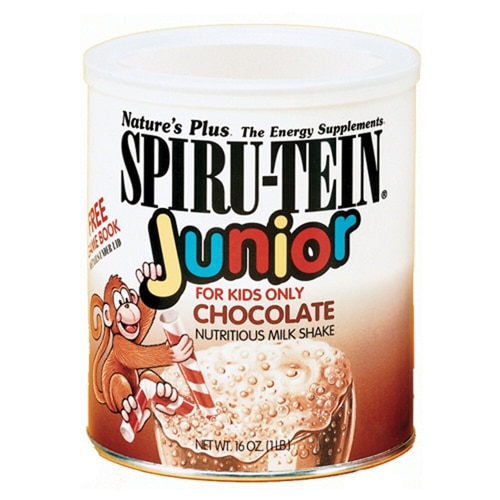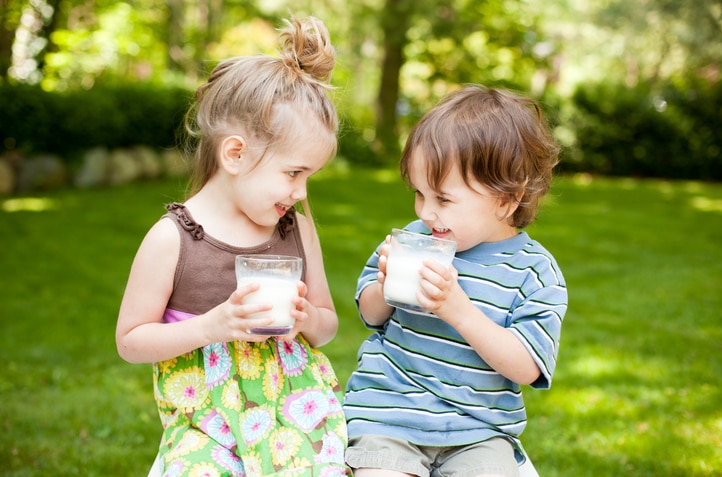Drink your milk! How many times did your mom say that when you were a kid? How many times have you said that to your own kids?
Whether it’s a glass of milk, a cup of yogurt or a slice of cheese, dairy is a regular fixture in the diets of most American children. The U.S. Department of Agriculture (USDA) recommends kids eat anywhere from 2 to 3 cups of dairy a day, depending on age and gender. A new study from University of Illinois researchers deems dairy an “excellent” source of protein for anyone age 6 months and above.
However, not everyone’s enthralled with the notion of kids consuming dairy products. An article on the One Green Planet website serves up 10 reasons “to never feed your kids dairy again.” Among other things, the article cites the cruelty inflicted on dairy animals.
“Their milk is taken from them by people instead of their offspring, the rightful beneficiaries, which were ripped away from their mother shortly after birth so she could live a life hooked up to a machine being drained of her own and her child’s life source. Not cool,” says the author of the article, vegan blogger Jonathon Engels.
So, is dairy evil or beneficial? It depends on your perspective.
For his part, Greg Miller, chief science officer at the National Dairy Council, says in a news release that the results of the University of Illinois study “indicate that dairy proteins may be an even higher-quality source of protein compared to vegetable-based protein sources than previously thought.” The council funded the research.
Registered dietitian nutritionist Rene Ficek, lead dietitian at Seattle Sutton’s Health Eating, a nationwide meal delivery service, touts dairy as an important source of protein and other nutrients for everyone from infants to the elderly.
“The nutritional benefits of including dairy far outweigh any negatives that may accompany dairy,” Ficek says.
Ficek says key nutrients for one member of the dairy family — milk — include high-quality protein; calcium, which strengthens bones; vitamin D, another contributor to bone health; and potassium, a mineral that promotes bone and muscle health.
In all, milk contains nine essential nutrients, Miller says. Those nutrients are vital in supporting the growth and development of children, he says.
Generally speaking, 1 cup of milk, yogurt or soy milk, 1½ ounces of natural cheese or 2 ounces of processed cheese constitutes 1 cup of dairy, the USDA says.
When considering dairy for a child’s diet, be sure to pay attention to the fat content, Ficek says. Recent studies indicate that people who consume full-fat dairy products weigh less and are less prone to chronic diseases than people who consume non-dairy products, she says.
Normally, Ficek says, younger children should consume full-fat dairy products, while school-aged children should consume low-fat dairy products. “Low-fat dairy typically is the same product, just with some of the fat removed and no other harmful ingredients included,” she says.
Of course, parents should keep an eye on whether their kids are lactose-intolerant or have dairy allergies, Ficek says. For children who can’t tolerate milk, other sources of essential nutrients should be substituted.
“It is possible to consume enough protein, calcium, vitamin D and potassium through other foods,” she says. “However, it requires a well-planned diet. For most Americans, it is easier to consume one food [like dairy] that supplies all of these nutrients.”
Ultimately, no source of protein, including dairy, should be relied on as the sole source of a child’s daily protein intake, says blogger Abbey Sharp, a registered dietitian. Protein sources such as meat, beans, lentil and tofu should be added to the mix, she says, “but dairy is a great place to start.”
Dairy critics like Engels, the vegan blogger, maintain that it’s a terrible place to start.
Aside from his complaint that the dairy industry abuses animals, Engels argues that:
- Dairy isn’t the only source of calcium.
- “Factory farms” in the dairy industry contribute to the destruction of the environment.
- Some dairy products contain GMOs and harmful chemicals.
“Most kids don’t want to drink milk anyway, so parents are actually force-feeding children something that isn’t healthy,” Engels says.
He adds: “Seriously, dairy is a bit scary. Do you let the kids watch scary movies? Maybe that warm glass of milk before bedtime should be of the coconut variety. Then, you could sleep a little more soundly as well.”




